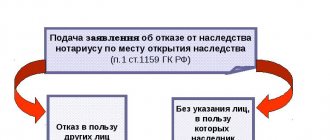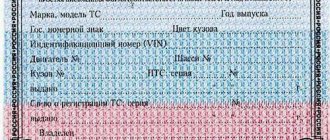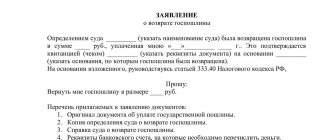In what cases are they recalled?
In Art. 188 of the Civil Code of the Russian Federation lists the grounds on which it is permitted to revoke a power of attorney from a representative:
- a citizen's refusal of authority;
- expiration of the document;
- cancellation of the order by the authorizing party;
- liquidation, reorganization of the legal entity that issued the order;
- death, recognition as incompetent or missing of the citizen to whom the order was issued or who issued the order;
- conducting bankruptcy proceedings against the principal and the authorized person, in which the person loses the right to issue documents.
The order is revoked before its expiration if:
- circumstances have changed and the principal intends to be present in the process or to collect and prepare documents;
- the representative has lost confidence for any reason.
The party that issued the document is not required to explain the reasons for its termination.
Change and termination of the marriage contract
After concluding a contract at any time, spouses can make changes to it, which must comply with the registration requirements:
- Be written;
- Signed spouses;
- Notarized.
As a rule, changes to the contract by one party are not allowed . However, there are circumstances in which one of the parties may make changes or withdraw completely from the contract
- If the terms are violated by the other party;
- When important changes in conditions occur.
What powers of attorney cannot be revoked?
There are documents-orders that are issued to ensure the fulfillment of certain obligations. They are used in business activities and are registered by a notary. An indication of the impossibility of cancellation is contained in the text and is regulated by clause 2, art. 188.1 of the Civil Code of the Russian Federation. Such trust deeds are issued for an unlimited period. They indicate the circumstances after which the order ceases to be valid or is cancelled. It is allowed to revoke a document if:
- it is used to commit fraudulent activities;
- errors have been identified in it;
- the authorized party violates the terms of use.
Invalidation of an agreement to pay alimony
The invalidity of the agreement is determined by Art. 102 RF IC. An agreement can be declared invalid through a court if the terms significantly violate the interests of the child or one of the parties.
An agreement can be declared invalid in the following cases:
- signing an agreement by a teenager without the written consent of the parents;
- one of the parties at the time of concluding the agreement did not realize the consequences due to strong medications, alcohol, drugs;
- drawing up a contract fraudulently or under duress;
- an illegal method of fulfilling alimony obligations has been established (transferring psychotropic or narcotic drugs as alimony, etc.);
- there is no notarization;
- concluded for appearances in order to avoid forced collection of property;
- one of the parties is completely incompetent (a child under 14 years old, an incompetent adult, etc.).
The procedure for recognizing the invalidity of an agreement
The recipient or the payer can go to court to invalidate the agreement.
The process looks like this step by step:
- Payment of state duty in the amount of 300 rubles. The receipt must be kept - it is attached to the rest of the documents.
- Drawing up a claim and submitting documentation to the district court at the defendant’s place of residence.
- Participation in legal proceedings. The period for consideration by the district court is 2 months.
- Obtaining a court decision and writ of execution.
If the agreement is contested by the recipient, he may, along with a request to invalidate the agreement, indicate the collection of alimony through the court. If the agreement was presented to the bailiffs or to the accounting department at the payer’s place of work to withhold alimony, the writ of execution is subsequently submitted there.
How to revoke a certified power of attorney
The service “Checking powers of attorney by details” has been launched in the Unified Information System of the Federal Notary Chamber. Its work is regulated by FNP Letter No. 674/01-01-2. The parties to the document are both individuals and legal entities. The act of commission implies an unlimited amount of delegated powers to third parties to carry out transactions with the property of a legal entity and an individual.
IMPORTANT!
From 2021, a notarized document can only be canceled through a notary! If it was drawn up in free form, the principal himself decides how to formalize the cancellation: in free form or notarized.
Here are instructions on how to revoke a notarized power of attorney to represent interests:
- You must contact any notary in the Russian Federation with a copy of the revoked document.
- The trusting organization provides constituent documents, a certificate from the Unified State Register of Legal Entities and confirms the authority of the person preparing the review.
- It is necessary to fill out a standard application for cancellation, indicating the details of the act being canceled.
Actions of a notary:
- Accepts the application for cancellation.
- Makes a corresponding entry in the Unified Electronic Register of Powers of Attorney of the Unified Notary Information System (UIS).
One day after the entry is made, authorized persons and organizations are considered informed, and their powers are terminated. The stage of notifying all interested parties when canceling a document is no longer present in the procedure as mandatory.
Since the introduction of the register, all organizations and institutions registering transactions carry out the verification procedure:
- Enter the details of the submitted powers of attorney and the person who certified them.
- Receive information about the status of the document.
Service cost
The Family Code requires the agreement to be certified by a notary. This service is paid, and additional costs often arise.
- Before contacting a lawyer, you need to draw up a draft contract. The price for services ranges from 5 to 10 thousand rubles. Drafting a complex contract will cost more.
- After drawing up and checking the contract, the notary will certify it. The cost of this service is the same for all of Russia and is 500 rubles.
There may be minor costs for technical work (printing, copying)
How to revoke an unauthorized power of attorney
Since 2021, 332-FZ dated 07/03/2017 has changed subclause 2 of clause 1 of Art. 188 of the Civil Code of the Russian Federation, which clarified whether it is possible to revoke a power of attorney from a notary if it is issued in simple written form. Now it's possible. The principal himself decides which of the two methods to choose:
- In free form.
- Through a notary. Follow the instructions on how to revoke a notarized power of attorney for an individual or organization.
It is easier to cancel an order that has not been notarized. Here are instructions on how to cancel in free form if the document was issued by an individual:
- A notice of document cancellation is drawn up in free form.
- The notification is delivered to the representative personally against his signature or by mail with notification.
- Third parties are notified in writing, with confirmation of notification.
- The trustee must return the deed of guarantee.
Instructions for revocation by a legal entity:
- The organization issues an order to cancel it and notifies the authorized party.
- The representative submits the power of attorney and registers this in a special journal.
- If it is impossible to notify the representative, the notification is published in the State Registration Bulletin or Kommersant. The document loses its legitimacy after a month from the date of publication.
Amount of alimony by agreement
According to Art. 103 of the RF IC, the parties can independently determine the amount of payments. But there are also limitations. The amount of alimony should not be less than the amount that could be recovered through the court.
In accordance with Art. 81 of the RF IC in 2021, when determining the amount of payments for children, their number and the payer’s salary are taken into account:
- for one child – 25%;
- for two children – 33%;
- for three children or more – 50%.
That is, when concluding an agreement to pay child support for one child, the monthly payment cannot be less than 25% of the parent’s earnings.
Payment form
The parties have the right to establish any convenient payment options:
- as a share of income;
- in a fixed amount, a multiple of the subsistence level;
- in the form of one large payment;
- offset of property against alimony.
If an agreement is concluded by the child’s parents, then the notary checks whether the children’s property interests are respected (so that the amount of alimony under the agreement is not less than the amount collected by the court).
When concluding an agreement between adult relatives, the notary does not limit the parties when they determine the form of payments. They decide for themselves how much alimony will be paid and how it will be paid.
Payment terms and transfer procedure
Payment deadlines are regulated by the parties. They can set payment terms at their discretion:
- weekly;
- monthly;
- quarterly;
- annual;
- one-time payments for the entire period.
The procedure for transferring funds is established by agreement. It states:
- On what dates will the money arrive?
- How are transfers made: through a bank, payment systems, etc.
The recipient's details are included in the agreement. It is allowed to hand over cash to the recipient, but the payer is recommended to take a receipt each time. Otherwise, the claimant will be able to claim payment through the court again, since the payer does not have evidence of payment.
Let's look at a practical example of drawing up an alimony agreement. The couple got married in June 2013, and their son was born in August 2015. The divorce took place in January 2021. The divorce was filed through the court, the child remained to live with his mother. Before filing the claim, the parties drew up an alimony agreement, according to which the father undertakes to pay 15,000 rubles monthly. for the maintenance of his son. The document also stipulates the conditions for indexation - in accordance with the increase in the monthly minimum. The entire divorce procedure took 3 weeks. Since the parties came to mutual agreement on all problematic issues, they were separated in one meeting. In the absence of agreements, the divorce process could drag on for several months.
When a document is revoked
The termination period for all types of agency documents is determined as follows:
- if the notice of cancellation (simple written and notarized) is sent by a notary, its validity period ends the next day after contacting the notary and posting the information in the register (clause 1 of Article 189 of the Civil Code of the Russian Federation as amended by Law No. 332-FZ);
- if the notice of cancellation in simple written form was sent to the trustee and third parties without notarization, by mail with notification, its validity period ends on the day of receipt;
- sub entrustment terminates in the event of cancellation of the main power of attorney (clause 3 of Article 188 of the Civil Code of the Russian Federation).
Drawing up a marriage contract
You can leave this task to a professional lawyer, or draw up an agreement yourself using the sample above. The document must not violate the rules established in the Family Code of the Russian Federation, otherwise it will be considered invalid.
Free consultation with an MFC lawyer
A marriage contract must
- Be signed by the spouses;
- Certified by a notary.
How to report that permissions are no longer valid
It is in the organization's best interest to communicate that the document is no longer valid to avoid problems in the future.
If the review is made in simple written form, the principal has the right to publish the information in any official publication in which information about bankruptcy is published. For example, in the newspapers “Kommersant” or “Bulletin of State Registration” (clause 1 of article 28 of Federal Law 127-FZ of October 26, 2002, part 2 of article 3 of 30-FZ of March 12, 2014 and Government Order 1049-r dated 07/21/2008). But to do this, the signature on the application for the revocation of authority will have to be notarized. One month from the date of publication, all third parties are considered notified.
If you follow the instructions on how to revoke a general power of attorney certified by a notary, you do not need to do anything additional. The notary himself will enter information into the special register of notarial actions of the Unified Notary Information System. Anyone can check the document and see that it is not valid. Access to the register is free and free.
Arbitrage practice
The case described below was heard in the Beloyarsk City Court of the Sverdlovsk Region in November 2021.
According to the plot of the case, the ex-wife demanded from the court:
- Cancel paragraph 3 of the marriage contract and declare it invalid. The basis for invalidity, according to the plaintiff, is that the law does not allow, under a marriage contract, to transfer the personal belongings of one spouse, purchased by him before marriage, into shared ownership or into the property of the other spouse.
- To collect from the ex-husband half the amount paid on bank loans during the marriage, as well as interest for late payments, since he did not fulfill the obligation provided for in paragraph 4 of the contract.
The ex-husband, in his response to the claim, indicated that the spouses have the right to change the personal property regime to a different property regime. With regard to the demand for payment of money, the plaintiff exceeded the time established by law for filing a claim.
The judge decided the case as follows:
- The conditions described in paragraph 3 of the agreement comply with the law, namely Article 42 of the Family Code, which allows, in a marriage contract, to change the regime of property belonging to one of the marriage partners. Thus, the plaintiff's claims in this part were rejected.
- The court assessed whether the plaintiff was disadvantaged. Considering the fact that in total after the divorce she received property worth more than 7 million rubles, the position of the ex-wife cannot be considered unfavorable.
- The defendant does not have evidence that he paid his ex-wife half of the amount transferred to banking organizations to repay loans during the marriage, therefore, he did not fulfill the obligation assigned to him. Thus, in this part, the ex-wife’s claim is satisfied.










